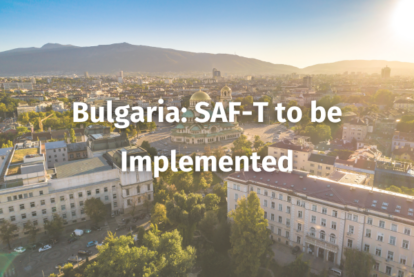Global VAT Guide: November 2024
The November edition of the Global VAT Guide features comprehensive updates on VAT regulations and developments from Austria, Croatia, Czech Republic, Finland, Germany, Argentina, Azerbaijan, Dominican Republic, Ethiopia, Iceland, Switzerland, Thailand, and the United Arab Emirates.
Austria
In July, the Bundesministerium für Finanzen (Federal Ministry of Finance) announced an increase in daily and overnight allowances for business trips, effective from January 2025.
The key changes are as follows:
- Daily allowance for domestic business trips
- The amount will rise to EUR 30.00 (previously EUR 26.40)
- Overnight allowance
- The amount will increase from EUR 15.00 to EUR 17.00
Croatia
This Draft Bill proposes several amendments to the existing VAT Act in order to align national legislation with EU directives and improve the efficiency of VAT administration.
The proposed changes are part of the ongoing effort to enhance the functioning of the VAT system and reduce administrative burdens for small enterprises and international businesses.
The proposed amendments are available for public consultation through e-Građani until 24 October 2024.
Some of the proposed changes are:
- Implementation of the EU Directive on Special Scheme for Small Enterprises:
- The amendments aim to transpose the EU Directive 2020/285 into national law, introducing a special VAT scheme for small enterprises.
- This scheme will allow small businesses, with a simplified VAT registration and reporting process, to benefit from reduced administrative burdens.
- The criteria for eligibility, including the annual turnover threshold, will be harmonized with the provisions of the EU directive
- Place of Supply for Services Provided Over the Internet:
- The place of supply for certain services that are transmitted over the internet, made available in virtual form, and provided to non-taxable persons (i.e., end consumers) will be clarified.
- This aligns with EU regulations to ensure that VAT is applied in the jurisdiction where the consumer is located. This is particularly relevant for digital services and online platforms.
- The change aims to improve the VAT compliance process for businesses offering digital services to private consumers.
- Increase of the VAT Registration Threshold:
- The threshold for mandatory VAT registration will be increased from EUR 40,000 to EUR 50,000 in annual turnover.
- This increase is designed to reduce the administrative burden on smaller businesses with limited turnover. Businesses with turnover below this new threshold will no longer be required to register for VAT, although they may choose to do so voluntarily.
- This change aligns with broader EU practices to support small businesses.
- Abolition of the Reciprocity Requirement for VAT Refunds to Non-EU Businesses:
- The existing condition of reciprocity, which requires VAT refunds to be granted only to businesses in countries that offer similar VAT refund mechanisms to Croatian businesses, will be abolished.
- Non-EU businesses will be able to claim VAT refunds on the same terms as EU-based businesses, provided they meet the necessary criteria set out by the Tax Administration.
- This change aims to facilitate cross-border trade and improve the competitiveness of Croatian businesses in international markets.
- Enabling the Deduction of Input VAT Based on a Decision by the Tax Administration:
- Businesses will be allowed to deduct input VAT based on a decision issued by the Croatian Tax Administration (Porezna uprava).
- This provision introduces more flexibility into the VAT deduction process, allowing businesses to claim input VAT deductions in a timely manner based on administrative decisions rather than waiting for more complex procedures.
- The change is intended to streamline VAT recovery procedures and improve cash flow for businesses.
The public consultation period for the proposed amendments is open until 24 October 2024. Stakeholders, including businesses, tax professionals, and other interested parties, are encouraged to provide feedback on the draft bill.
The final version of the bill will incorporate the input received during this consultation and will be submitted for parliamentary approval.
Czech Republic
The changes to the Czech VAT Refund procedure for non-EU businesses, as outlined in the draft amendments to Act No. 235/2004 Coll., will significantly impact how VAT refunds are processed for non-European Union (EU) claimants. Here’s a breakdown of the key points:
- Reciprocity Conditions and Eligible Countries (Effective January 2025)
Introduction of Reciprocity List: Starting in January 2025, a list of countries with reciprocity conditions will be established. This means that non-EU countries wishing to participate in the VAT refund procedure must have a similar system in place that allows VAT refunds to Czech businesses.
Publication of List: The Ministry of Finance will publish this list in the Financial Bulletin, which will identify the countries that meet these reciprocity conditions.
- Submission of VAT Refund Applications (Effective January 2026)
Electronic Submission: From January 2026 onwards, the submission of VAT refund applications will switch from a paper-based system to an electronic format. This change is in line with broader digitalization efforts and will likely streamline the process and make it more efficient for both businesses and the authorities.
Extended Deadline: The deadline for submitting VAT refund applications will be extended from the current date of June to December of the year following the refund period. This provides claimants with more time to submit their applications, reducing the risk of missing the deadline.
Potential Impact on Non-EU Businesses:
For businesses based in countries listed as meeting reciprocity conditions, the process should become more streamlined with the introduction of electronic applications and the extended submission deadline.
For businesses in countries not meeting reciprocity requirements, they may find themselves excluded from the refund process unless they can arrange for VAT refunds through intermediaries or other means.
These changes are expected to improve the efficiency of the VAT refund process while ensuring that reciprocal arrangements are in place for non-EU countries. It is important for businesses in third countries to monitor the Ministry of Finance’s publications to ensure they are aware of whether their country will be included in the list of reciprocity countries.
Finland
The Finnish Customs has issued specific guidance on the use of Nature of Transaction Code 12 in Intrastat declarations.
This code is intended solely for transactions involving direct trade of goods between companies and private consumers within the EU.
Nature of Transaction Code 12 is applicable when the goods are directly traded between a company and a private consumer (i.e., B2C transactions).
This code should be used only when at least one party in the transaction is a private consumer, and the goods are transferred directly between the company and the consumer.
Nature of Transaction Code 12 should not be used in cases where both counterparties in the transaction are businesses (B2B).
In B2B transactions, even if the goods are ultimately sold to a private consumer, the transaction between the companies should be reported under Nature of Transaction Code 11.
Example of a B2B Scenario:
Consider a situation where goods are sold by resellers to private consumers via online stores. If the goods are first sold to a company in the consumer’s Member State before being forwarded to the private consumer, the transaction is considered a B2B transaction and should be reported with Nature of Transaction Code 11, not 12.
This distinction ensures that Intrastat reports reflect the correct nature of trade, whether goods are moving between businesses or directly to consumers.
Germany
Increase in Threshold
On 29 October 2024, the Fourth Bureaucracy Reduction Act (Viertes Bürokratieentlastungsgesetz) was published in the Federal Law Gazette.
This law, which was approved by the Bundestag on 23 October 2024 and received the consent of the Bundesrat, introduces several changes aimed at reducing bureaucratic burdens on citizens, businesses, and the administration.
One of the key changes include:
- Increase in the VAT Filing Threshold
- One of the significant amendments in the VAT law is the increase in the threshold for the quarterly VAT return filing requirement
- The threshold is raised from EUR 7,500 to EUR 9,000 in annual VAT liability
- This means that businesses with an annual VAT liability of €9,000 or less will be allowed to file VAT returns on a quarterly basis, rather than monthly.
These changes will come into effect on 1 January 2025.
Reduction of Record Keeping Period
The amendment to the VAT Act, as outlined in the Fourth Bureaucracy Reduction Act, brings a significant change by reducing the retention period for accounting documents from 10 years to 8 years.
This change is specifically reflected in Section 14b, Paragraph 1, Sentence 1 of the VAT Act, which governs the retention of invoices by entrepreneurs.
Currently, under the VAT Act, entrepreneurs are required to retain copies of invoices they have issued (or that have been issued on their behalf) as well as invoices they have received for a period of 10 years.
With the new amendment, this period will be reduced to 8 years.
This adjustment is part of broader efforts to reduce bureaucratic burdens for citizens, businesses, and the administration.
The law is expected to come into effect on 1 January 2025, but it has not yet been published in the official Gazette as of the publication date (27 September 2024).
For businesses, this means they will be able to dispose of certain documents two years earlier than currently required, potentially simplifying record-keeping and compliance.
However, until the official publication and implementation of the law, the existing 10-year retention requirement remains in force.
VAT Special Measure
On 8 October 2024, the Council of the EU granted Germany a further two-year extension for the special measure concerning the domestic reverse charge mechanism under Article 13b(2)(6) of the German VAT Act (UStG).
This measure affects the taxation of Emission Allowances.
The extension was granted in response to a request made by Germany through a letter registered on 19 February 2024, seeking authorization to continue applying the reverse charge mechanism beyond its original expiry date (31 December 2024).
The extended measure will now remain in force until 31 December 2026.
If Germany wishes to continue the special measure beyond 31 December 2026, it must submit a report to the European Commission by 31 March 2026.
This special measure likely aims to simplify the taxation and reduce administrative burden in relation to the trading and transfer of Emission Allowances, which are typically subject to VAT. The reverse charge mechanism allows the purchaser of such allowances (rather than the seller) to account for the VAT, often to reduce the risk of VAT fraud and enhance the efficiency of VAT collection.
Argentina
On 21 October 2024, the Casa Rosada Presidencia announced a major reform in Argentina’s tax and customs administration.
The Federal Administration of Public Revenue (AFIP) will be replaced by a new agency called ARCA (Agency for Collection and Customs Control / Agencia de Recaudación y Control Aduanero).
ARCA will take over all functions and services currently provided by AFIP, including tax collection, customs control, and other regulatory activities.
This transition marks a significant restructuring aimed at improving efficiency and streamlining the country’s tax and customs processes.
In addition, on 25 October 2024, Decree 953/2024 was published in the Official Gazette. This executive order formally establishes ARCA and will come into effect immediately upon its publication.
This change will bring a new approach to managing tax and customs functions, and stakeholders are encouraged to stay informed about further developments regarding the transition.
Azerbaijan
On 2 July 2024, Azerbaijan’s Cabinet of Ministers announced the implementation of new measures under Articles 33.8-1 and 169.8 of the Tax Code, concerning the electronic registration of non-residents involved in e-commerce sales.
The government adopted the “Regulations for Electronic Tax Registration, Re-registration, and De-registration of Non-Residents Carrying Out Electronic Commerce via Internet Information Resources”.
The regulations outline the requirements for non-resident businesses engaged in electronic commerce through internet platforms.
The scope of reportable supplies includes:
- Downloading of digital products such as e-books, music, audiovideo materials, graphic images, and software;
- Virtual games and digital content;
- Placing advertisements on internet resources;
- Acting as a seller or supplier for other similar digital products and services.
The regulations provide further clarification on the criteria used to determine whether a particular supply is subject to VAT in Azerbaijan.
These include:
- The recipient’s place of residence.
- The IP address of the recipient.
- The country phone code.
- Changes related to the payment institution processing the transaction.
- Registration Requirements:
Non-resident businesses that earn income from services provided to individuals who are not registered taxpayers in Azerbaijan (excluding those with a permanent establishment) must register electronically for VAT purposes.
Registered non-residents are required to submit their VAT tax returns and ensure that taxes are paid within the timelines specified in the Tax Code.
The State Tax Service has launched a dedicated platform for non-residents to facilitate electronic tax registration, re-registration, and de-registration through the e-tax portal. Non-resident businesses engaged in electronic commerce must ensure compliance with these new registration and reporting obligations to avoid penalties. The platform launched by the State Tax Service aims to streamline this process and support businesses in meeting the requirements.
Dominican Republic
On 8 October 2024, the Dominican Republic announced a comprehensive fiscal reform plan aimed at modernizing its tax system and boosting government revenue.
The plan introduces significant changes across various sectors, including tax adjustments, social programs, and infrastructure projects.
The reform extends income tax and 18% VAT to services provided from abroad. This includes services such as digital subscriptions and online services, which were previously not subject to local tax.
VAT exemptions on online rental services (such as short-term property rentals) are being removed, meaning these services will now be subject to the standard VAT rate.
VAT will be applied to low-value imports that were previously exempt. This move aims to capture more revenue from small goods and online purchases.
The reform includes an increase in excise taxes on sugary drinks and alcoholic beverages as part of the government’s effort to promote healthier lifestyles and increase public revenue.
Expansion of the “Aliméntate” Social Program: The government plans to expand the “Aliméntate” program, which provides food assistance to vulnerable populations.
Increase in Public Sector Minimum Wage: The minimum wage for public sector employees will be raised to improve living standards for government workers.
The government will hire over 20,000 new security personnel to improve public safety.
A series of infrastructure projects, including the development of a new train system and the construction of 116 new police stations, will also be launched.
Most of the tax changes will take effect immediately upon the publication of the law.
Regulations for the low-value goods (LVG) tax will be implemented within 120 days.
Ethiopia
On 21 August 2024, the Federal Negarit Gazette of the Federal Democratic Republic of Ethiopia published Proclamation No. 1341/2024 concerning the taxation of remote services.
Definition of Remote Services: The Proclamation provides a clear definition of remote services and outlines the categories of service providers subject to its provisions.
Service providers supplying remote services are required to register for VAT if their taxable sales exceed 2,000,000 Birr (approximately US$17,500) within any 12-month period.
This applies to Business-to-Consumer (B2C) transactions.
The regulation specifies the types of invoices that must be issued by remote service providers in Ethiopia.
The Proclamation details the filing and payment responsibilities of service providers, ensuring that VAT is properly reported and paid to the authorities.
Service providers are also required to maintain the necessary documentation for tax purposes.
Iceland
On 30 September 2024, the Iceland Tax Authority issued a notification regarding the closure of the IceKey login certification for accessing the Iceland ePortal service (island.is).
Businesses were advised to transition to alternative login methods for accessing ePortal services.
IceKey Login Closure: The IceKey login system will no longer be available for accessing Iceland’s ePortal starting 30 September 2024.
Alternative Login Methods: Businesses are encouraged to adopt alternative login solutions for accessing the ePortal, though specific alternatives were not outlined in the notification.
The closure of the IceKey login does not affect the VAT on Electronic Services (VOES) simplified registration and return filing process. Businesses can continue to use the existing processes for VOES without disruption.
Switzerland
On 16 October 2023, the Swiss Federal Council published a draft for a Federal Decree on the additional financing of the AHV (Old Age and Survivors’ Insurance) through an increase in Value Added Tax (VAT) rates.
Below is a summary of the proposed changes:
- The Standard VAT rate will increase from 8.1% to 8.8%;
- The Special rate for the accommodation sector will increase from 3.8% to 4.2%;
- The Reduced rate for everyday consumer goods will increase from 2.6% to 2.8%
These changes are part of an effort to generate additional funds for Switzerland’s AHV, which is facing long-term financial challenges due to demographic shifts and rising pension obligations.
A referendum will be held to approve or reject the VAT increase.
In order for the vote to take place the Parliament must have completed its examination of the draft by March 2025 at the latest.
Background:
The AHV is a critical component of Switzerland’s social security system, providing pensions and financial support to the elderly, survivors, and disabled individuals.
With an aging population and a declining ratio of workers to retirees, the AHV is under financial pressure. The VAT increase is part of a broader strategy to secure additional funding for the system.
If the referendum goes ahead and voters approve the measure, the higher VAT rates would come into effect, supporting the AHV’s long-term sustainability.
Thailand
Thailand is moving forward with plans to amend its VAT law to require foreign online platforms to register for VAT.
This initiative, discussed during a government meeting led by Deputy Minister Phumtham Wechayachai, aims to better regulate the growing online trade market.
One of the key changes involves both local and foreign online businesses being required to register with the Thai authorities and comply with the country’s VAT regulations.
The Revenue Department is working to update tax legislation in support of this new requirement.
In addition to the VAT registration mandate, the government plans to increase customs inspections and tighten checks on online products entering the country.
Authorities also outlined measures to assist small businesses in Thailand, helping them grow and compete by expanding their export opportunities, particularly to major markets like China, Japan, and South Korea.
United Arab Emirates
On 6 September 2024, the Federal Tax Authority (FTA) issued an update to the Executive Regulation of the Federal Decree-Law No. 8 of 2017 on VAT (Cabinet Decision No. 52 of 2017 and its amendments).
This update introduces significant changes regarding the deductibility of health insurance expenses provided to employees.
Health insurance costs provided free of charge to employees are now recognized as recoverable expenses under VAT.
The health insurance coverage also extends to employees’ family members, including one spouse and up to three children who are under the age of 18.
These changes are set to take effect on 15 November 2024.
Stay Up to Date with Our VAT Newsletter
To ensure you remain informed about the latest VAT news, trends, and topics from around the globe, subscribe to our VAT Newsletter. Each month, we deliver insightful updates straight to your inbox, helping you stay ahead of the curve.
Partner with Real VAT Experts
With decades of experience in VAT compliance and consultancy, our team at Taxback International stands ready to assist you. We offer comprehensive expertise across all countries and languages where VAT obligations exist.
Explore Cutting-Edge Solutions
In addition to our consultancy services, we’ve developed tailored technology solutions to address the VAT challenges confronting businesses today.
Here’s a glimpse of what we offer:
Comply: Our VAT Compliance platform ensures seamless adherence to VAT regulations.
VATConnect: Optimize VAT reclaim processes, both foreign and domestic, with our VAT Reclaim platform.
TBI Pay: Simplify cross-border payments using our streamlined technology solution.
Reach out to us today to discover how we can support your business’s VAT needs amidst evolving tax landscapes.



